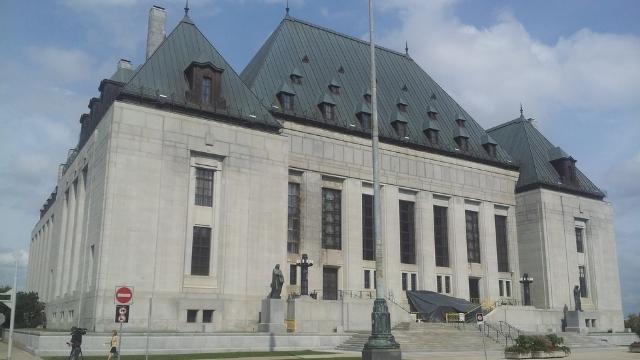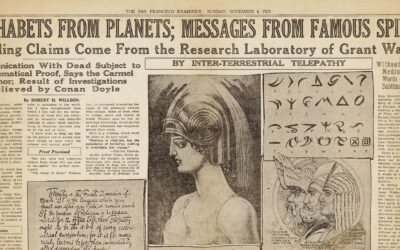Disassociation is not the same as simply becoming inactive. And there is no disfellowshipping for minor mistakes, only for unrepentant serious sins.
by Massimo Introvigne
Article 2 of 6. Read article 1, article 2, article 3, article 4, article 5, and article 6.

There are two categories of former Jehovah’s Witnesses who may be subject to shunning. The first includes those who have been disfellowshipped. The second comprise those who have disassociated themselves from the organization.
Before discussing shunning, it is therefore necessary to understand disfellowshipping, but first we should examine the case of those who voluntarily disassociate themselves. Opponents sometimes claim that it is unfair to treat in the same way those who have been disfellowshipped for serious sins and those who have simply left the Jehovah’s Witnesses. However, this objection is based on a misunderstanding.
There is a large sociological literature on “non-practicing” or “lapsed” members of a religion. For instance, most of those who have been baptized as Roman Catholics are inactive, i.e. they rarely if ever attend Mass and other ceremonies, and regard themselves as “non-practicing.” In almost all countries with a Catholic majority, sociologists believe that there are now more “non-practicing” or “lapsed” Catholics than active Catholics. Only in Germany, before 2009 (when the Catholic Church changed its rules) it was comparatively common for lapsed Catholics to enter a formal declaration of “defection” in their parish’s registers. They did so to avoid paying the church tax the German state collects for the benefit of the Catholic Church from those registered as Catholics.
With this very special exception, the overwhelming majority of lapsed Catholics do not formally disassociate themselves from the Catholic Church. Only a tiny minority of apostate ex-Catholics, who have turned into vociferous opponents of their former church, write strong-worded letters or publicly declare their apostasy, or announce that they have joined another religion or become atheists. Under the prevalent interpretation of Catholic Canon Law these militant apostates are ipso facto excommunicated, which is not the case for the lapsed Catholics.
The situation is the same among the Jehovah’s Witnesses. As all large religious organizations, every year the Jehovah’s Witnesses have a percentage of “lapsed” members who become in different ways inactive, just as they have a percentage of new members who join the organization. The Witnesses say of those who become inactive that “their faith has become weak.” They no longer participate in congregational meetings, no longer preach to others, perhaps even drift away from their association with fellow believers. These “lapsed” or “weak” believers are not disfellowshipped nor shunned.
In contrast, those rarer apostate ex-members who have formally and publicly renounced their faith and disassociate themselves from the congregation either in writing or by action (e.g., by formally joining another religion, or a secular organization that according to the Jehovah’s Witnesses “has objectives contrary to Bible teachings”) are considered as being in the same position as those who have been disfellowshipped. As mentioned earlier, this is by no means unique to the Jehovah’s Witnesses. For example, according to the prevailing interpretation of Canon Law, the same situation exists in the Catholic Church.

Almost all religions have procedures for excommunicating or excluding members guilty of serious offenses from their fold. These offenses may be moral, such as adultery, systematic drunkenness, or theft, or religious, such as denying essential principles of the faith. Most religions, including the Jehovah’s Witnesses, protect the privacy of the excluded members and do not publicly state the reasons for their exclusion. While this is laudable, and in some countries mandated by secular privacy laws, it allows for misrepresentation. Not surprisingly, ex-members who have been excluded for immorality or theft may not be willing to advertise their peccadillos, and may prefer to report that the reason for their exclusion was doctrinal disagreement. In fact, leading academic scholars of the Jehovah’s Witnesses such as George Chryssides have observed that sexual immorality is the most frequent reason leading to being disfellowshipped.
For the Jehovah’s Witnesses, the notion of “unrepentant sin” is also important. The study edition of “The Watchtower” for October 2021, for example, specifies that “Unrepentant wrongdoers are disfellowshipped from the congregation.” Non-repentance is an essential factor in disfellowshipping.
It has repeatedly happened that disfellowshipped Jehovah’s Witnesses have asked secular courts to reconsider the decisions of the organizations’ judicial committees. They have consistently lost, with rare exceptions, such as a bizarre Norwegian decision in 2021, which has been however overturned by the Norwegian Supreme Court in 2022. However, these cases are in their own way useful, as they have produced a comprehensive assessment of the process leading to disfellowshipping by observers who are by definition neutral such as secular judges.
Courts of law have maintained that decisions of disfellowshipping or exclusion by a religious body are not justiciable, and are protected by the basic religious freedom principle that religions are free to self-organize themselves without interference from the states. In 2007, the Court of Appeals of Tennessee observed that the Jehovah’s Witnesses “argue that the freedom of religious bodies to determine their own membership is such a fundamentally ecclesiastical matter that courts are prohibited from adjudicating disputes over membership or expulsion. We agree. Because religious bodies are free to establish their own guidelines for membership and a governance system to resolve disputes about membership without interference from civil authorities, decisions to exclude persons from membership are not reviewable by civil courts.”
In 2018, in the case “Judicial Committee of the Highwood Congregation of Jehovah’s Witnesses and Highwood Congregation of Jehovah’s Witnesses v. Randy Wall,” a unanimous Supreme Court of Canada reiterated that “secular judicial determinations of theological or religious disputes, or of contentious matters of religious doctrine, unjustifiably entangle the court in the affairs of religion.” It added that “even the procedural rules of a particular religious group may involve the interpretation of religious doctrine,” and concluded that “these types of [religious] procedural rules are also not justiciable.”

Sociologists would agree, having been taught by Max Weber (1864–1920) that procedure in a religious organization is in itself theology. Among the Jehovah’s Witnesses, procedural rules are rooted in religious belief rather than derived from secular law. Some terminology may sound court-like (“notice,” “opportunity to be heard,” “appeal”) but the context is undoubtedly religious: judicial meetings open with prayer and refer to Biblical principles. The unavoidable conclusion is that these rules and procedures are inherently religious.
While European courts have also generally ruled in favor of Jehovah’s Witnesses in disfellowshipping cases, there is a nuance with respect to North American decisions. Italian courts, for example, have repeatedly commented that, while secular judges cannot compel ecclesiastical courts to adopt the same rules of national or European tribunals, because they cannot interfere with how religions decide to organize themselves, nonetheless they can examine whether judicial committees did follow their own rules, and whether in some form the right of the defendant to be heard, which is a basic human right, was granted to the person who had been disfellowshipped. Courts in Bari (in 2004 and 2007), in Rome (2021), and most recently in Teramo have concluded that the judicial committees do apply the rules set forth by the Jehovah’s Witnesses, and these rules grant the defendants the right to be heard and defend themselves.
Additionally, after a decision disfellowshipping them, the defendants are allowed to appeal. In this case, as explained in chapter 14, no. 26, of the internal manual “Organized to Do Jehovah’s Will,” “the body of elders will contact the circuit overseer, who will select qualified elders [normally from a different congregation] to serve on an appeal committee to rehear the case.” All Jehovah’s Witnesses’ “publishers” have a copy of this book, and it is easily available in print and electronic format.
What offenses are ground for disfellowshipping, on the other hand, is a theological question on which secular judges cannot interfere, as the High Court of England and Wales, Queen’s Bench Division, confirmed on June 7, 2019 (the decision was upheld by the Court of Appeal in London, Queen’s Bench Division, on March 17, 2020).
While what offenses are so serious that they should lead to disfellowshipping is a matter on which the Jehovah’s Witnesses are free to decide themselves, it is important to note that, notwithstanding anecdotes apostate ex-members like to report (and which should always be verified without accepting them at face value), disfellowshipping does not happen for minor mistakes but for unrepentant serious moral sins, or for publicly denying doctrines the Jehovah’s Witnesses regard as essential. Some in our liberal modern societies may regard excommunication or disfellowshipping as generally unacceptable, but they exist in all religions, not to mention political parties, trade unions, and other secular organizations.
In these cases courts, including the European Court of Human Rights, have repeatedly ruled that freedom of speech and religious liberty of those excluded are not violated. If they disagree with the moral and theological standards of their religion, their individual liberty is protected by the fact that nobody prevents them from leaving it and join or establish a religious organization with entirely different practices and beliefs.

It should be added that, like other religions that practice forms of excommunication or exclusion, the Jehovah’s Witnesses believe that the function of disfellowshipping is more medicinal than punitive. It is an open offer to the disfellowshipped persons to amend their ways and repent. In fact, many do. As the study edition of the official magazine “The Watchtower” stated in October 2021, “Is disfellowshipping really an expression of mercy? Yes, it is. To withhold discipline from someone who needs it is not wise, merciful, or loving. (Prov. 13:24) Can getting disfellowshipped help an unrepentant sinner change his course? It can. Many who have fallen into serious sin have found that the firm action the elders took gave them the very jolt they needed to come to their senses, change their course of action, and return to Jehovah’s warm embrace.”
Scholars who have studied the Jehovah’s Witnesses have all met members who had been disfellowshipped and had later returned to their congregation. This is evidence that claims about the medicinal role of disfellowshipping are not merely rhetorical. Jehovah’s Witnesses make genuine efforts to put these teachings into practice. Their efforts are often successful.

Massimo Introvigne (born June 14, 1955 in Rome) is an Italian sociologist of religions. He is the founder and managing director of the Center for Studies on New Religions (CESNUR), an international network of scholars who study new religious movements. Introvigne is the author of some 70 books and more than 100 articles in the field of sociology of religion. He was the main author of the Enciclopedia delle religioni in Italia (Encyclopedia of Religions in Italy). He is a member of the editorial board for the Interdisciplinary Journal of Research on Religion and of the executive board of University of California Press’ Nova Religio. From January 5 to December 31, 2011, he has served as the “Representative on combating racism, xenophobia and discrimination, with a special focus on discrimination against Christians and members of other religions” of the Organization for Security and Co-operation in Europe (OSCE). From 2012 to 2015 he served as chairperson of the Observatory of Religious Liberty, instituted by the Italian Ministry of Foreign Affairs in order to monitor problems of religious liberty on a worldwide scale.



